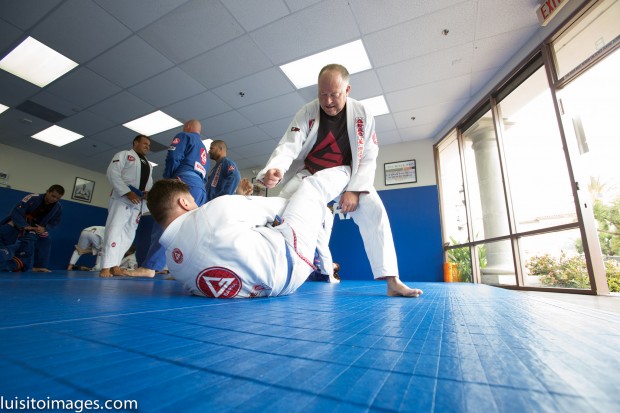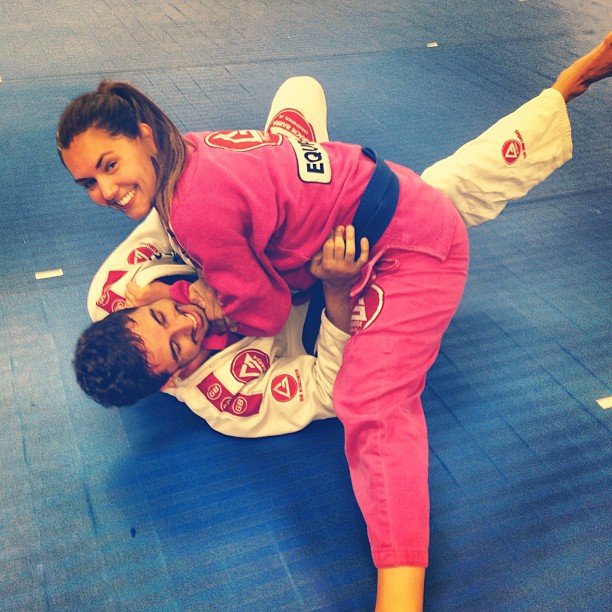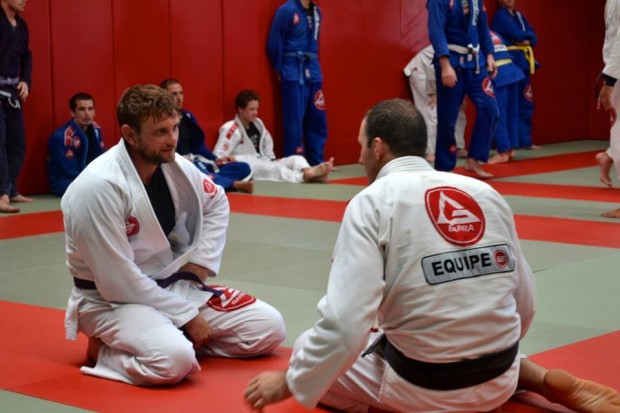Invisible Progress – You May Be Improving And Not Know It!
Following a roll with one of the white belt students at the end of class (white belt 3 stripes vs. black belt instructor) the student seemed slightly discouraged.
Read also: 3 Pieces of Advice for White Belts
The student (who attends class faithfully and tries to use the techniques that are demonstrated in class) expressed that he felt frustrated that nothing he tried seemed to work against the black belt opponent (me). I explained that in fact, he was doing quite well in the roll and was doing many thing correctly!

He seemed puzzled and asked why nothing he tried was working against me?
I stated that I had much more experience than he did and that I could see what he was trying to do, predict his reactions and escapes and was prepared to defend his moves. But that didn’t mean that he was not doing the correct things! He was measuring his skills / progress solely by whether he tapped or got tapped.
The student wanted to know how he could be showing improvement if none of his sweeps worked against me and he was tapped repeatedly in the roll. I said that when a white belt first starts training, that they have little knowledge and will be caught be surprise by most of the submissions. The attacker can often get the submission with the first direct technique they attack with.
However, he had been training over a year and was no stranger to most of the attacks and sweeps that he had to defend. In the roll with him, I attacked several sweeps that he defended and once I had gained the top position, he successfully defended my Kimura and arm lock before being caught with the collar choke.

I explained that he had forced me to try several different techniques because he had done the CORRECT techniques to defend my first attack. Yes, I had eventually caught him in a submission…. BUT it was with the 3rd or 4th attack combination I tried, not the 1st attack! He stopped my first 3 attacks and made me change my attack.
Now that IS demonstrating progress, but he was viewing his jiu-jitsu skill in a black or white manner: either he got tapped or tapped his opponent during the roll. Instead, he should have said to himself “I remembered to protect my elbow and avoided his arm lock. My arm lock defence is getting tougher!”
I told him that he was doing the correct things. “Just keep training regularly and attempting to use the techniques that were being showed in class.”
Remember when rolling with an opponent of a higher level that due to their greater experience, that they will almost always have an answer for your technique. That doesn’t mean that your technique is not valid (“That sweep just doesn’t work!”) but that the opponent has the edge in experience and is making decisions faster and beating you to the next transition or position.

Your improvement in bjj can be very subtle and should be gauged solely by “who tapped who”.
I asked him if a brand new student would be successful against him with the technique they had just learned? Of course not!
“What would your advice be to that new student who asked what they should do to get better?” He laughed and repeated the earlier advice that he had been given himself: “Just keep training regularly and attempting to use the techniques that were being showed in class.”
read also:Advice for New Students on How to Roll
Credits: Mark Mullen
Gracie Barra Black belt based in Taipei, Taiwan
Twitter: @MarkMullenBJJ
